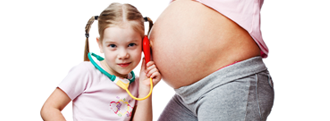Your Child at 15 Months
Childhood Development Guide from Westside Pediatrics
The board-certified pediatricians at Westside Pediatrics have provided this pediatric development guide to help educate parents on some of the amazing things their child can do at this age and tips around care including safety and introducing the use of discipline. Call (585) 247-5400 to schedule an appointment at our pediatric office in Rochester, NY.
Download PDF Version
WHAT YOUR BABY CAN DO
At this age your baby can probably:
Walk…
climb…
Pick up small objects…
Say nonsense words, maybe a few real words…
Understand his name and come when called…
Remember an object once it’s out of sight…
Drink from a cup (may need help holding the cup)…
Use a spoon…
What can you do with your toddler
Play with him.
Now that your child can really move he is probably into everything. Make sure the house is safe and let him explore.
Talk to him
Name objects as you use or see them: “Here is your bowl” or “Do you see the dog?”
Listen to him
Try to understand what he says. Give him a change to answer your questions and respond to him, even if you can’t understand what he says.
Hold him
Don’t forget to hug your child and tell him you love him.
Try to make teaching your toddler to brush his teeth enjoyable
Children like the taste of tooth paste and will try to eat it. This can cause fluorosis. Don’t use mouth wash—it contains alcohol.
Safety
Toddlers get into everything. By now your child can probably walk fast or even run. Make sure that he has a safe place in which to explore by safety-proofing your home.
Keep teaching your child about dangers by using words like “hot” or “ouch” so he knows what to avoid. This is the age when your child explores a lot but doesn’t yet know what is dangerous. Help avoid accidents by giving him a safe place to explore and teaching him about dangers!
Safety Check List
- temperature at lowest setting on water heater
- smoke alarms and carbon monoxide detectors
- do not leave unattended in bath tub
- gates in front of stairs or other unsafe areas
- use of sun screens to prevent sunburn
Foods to avoid
Some foods are not good for your child. Below is a list of some of these foods. If you are feeding your child any of these, try giving him one of the suggested foods instead.
Popcorn, nuts and seeds
These foods can cause choking.
Smoked or cured meats like hot dogs, bacon, or bologna.
These have lots of chemicals in them and are not good for your child. Instead give your child chicken, turkey or lean beef.
Artificial sweeteners
Don’t give your child food or drink with “NutraSweet” (Aspartame) or Saccharin in them. Your child needs the calories and the artificial sweeteners are not good for him. Limit the sweets you give your child, but avoid artificial sweeteners.
Food and drink with caffeine in them
Coffee, tea, cocoa, or chocolate (it’s hard to avoid chocolate so just try to limit it). Caffeine or caffeine containing beverages will make your child jittery. Instead give him water or diluted juice.
Feeding facts
At this age, your toddler should be getting better at feeding herself. Is she using a cup well? If you haven’t already done so, give her a spoon at mealtimes. She may just wave it around at first and still feed herself with her fingers, but she will get used to the spoon and will start to copy others who are using their spoons to eat.
If you haven’t yet weaned your child from the breasts or the bottle, now is a good time to do so. See the last issue (12 Months) of “Healthy Kids” for tips on weaning. Your child should be eating what the rest of the family is eating. Don’t cook “special” food just for her. Now is the time to start setting limits.
Discipline Dos and Don’ts
Discipline is probably the hardest part about being a parent. It takes a long time and lots of patience. Do you wonder sometimes if you’re doing it “right”? There is no one right way to discipline a child, but here are some tips that might make it easier.
DON’T tell your child she is bad or that she makes you angry. Hearing things like that will make her think she is not a good person, and she is.
DON’T draw attention to bad behavior. Your child wants attention. If behaving badly gets him attention, he will behave badly. So instead of scolding him when he does something you don’t like, ignore the bad behavior. If he is throwing food, calmly take the plate away and say “Food is for eating, not for throwing” and then give him another chance.
DON’T say “No”, “Quit” or “Stop” too much. Save these words for emergencies. If your child hears “No” all the time, she will feel like she can’t do anything.
DON’T tempt your child by leaving things around that you don’t want him to play with. He is curious. If you leave your purse near him, he will dump everything out. Don’t get angry with him for being curious.
DON’T hit your child. Any physical punishment tells your child that hitting is okay. DO tell your child when her behavior is bad. You might say “It is not okay for you to tease your sister” or “It makes me angry when you make so much noise”.
DO praise your child when he behaves well. If behaving well gets him attention, he will behave well. It is easier to notice your child when he behaves badly. But it is more important to praise good behavior. When he doesn’t throw his food, say “You have done such a good job eating your lunch neatly. I am very proud of you”.
DO offer alternatives. Instead of just saying “No, you can’t draw on the table”, also say “but you can draw on this piece of paper”. Offering alternative stops the bad behavior and makes your child feel good too.
DO use time-outs. They work. Remember to give your child a warning first and explain why she is getting a time-out.
Discipline: using time outs
Use time-outs when your child behaves in a way that you can’t ignore, like biting or pulling hair. First, give your child a warning. Tell her what she is doing that is wrong and that if she continues she will need to take some “time-out”. If she continues, send her to her room or a quiet place like the bottom step of the stairs. Be sure to hell her why she is taking a “time-out”, you might say, “It is not okay to pull hair. I think you need to sit and think about it for a few minutes. I will call you when you can get up”.
After the time-out is over, remember to give your child a chance to try again.
Don’t let a time-out last more than 2-3 minutes. One minute is a good length of time for a child this age.
Things you may be worried about at 15 months old
Sleep
Is your child having trouble going to sleep? Here are some tips to help make bedtime easier.
Make a regular bedtime routine
This might include a bath, a story, a song, a cuddle. Do this in a relaxed setting. Dim the lights, turn off the TV and try to keep away from the noise. When you choose a story or a song, sing or speak in a quiet, low voice. Don’t play exciting games or tickle your child.
- If he needs a light on, leave a little nightlight on in the room
- Leave your child with a favorite toy or stuffed animal to keep him company
- Give goodnight kisses and goodbyes
Even with regular routine, your child may cry when you leave the room. The best thing to do for this is to let him cry. If you answer his cries, he will learn to depend on you at bedtime.
It is much better to teach him to depend on himself. If you have a regularly happy bedtime routine, he will soon learn what to expect, and bedtime will be easier.
Some children still have trouble sleeping and nothing seems to help. If you child is having a hard time, ask your pediatrician or nurse about it.
Help your 15 month old child learn
Toys
This is a good time to start teaching your child about shapes. Show her a ball and a block and tell her which one is round and which one is square.
Puzzles are good toys to help your child learn about shapes. See if you can find a puzzle with big pieces for your child to play with.
Push-pull toys are also good for a child this age. Try to find a toy your child can pull around with her. Or make one yourself by tying a string to a toy like a truck or stuffed animal.
Keep talking to your child
Remember to tell her what you are doing and try to answer her questions, even if that means saying “I don’t know”. Also keep reviewing body parts with her.
POISON CONTROL CENTER
1-800-222-1222
COMING ATTRACTIONS
Before her next checkup, your child may:
walk faster, with fewer falls…
run stiffly…
walk up stairs with both feet on the same step, one hand held…
unzip zippers (maybe)…
Take time to keep teaching your child about body parts. Keep her diet healthy, and remember to give her lots of love and affections!
Schedule an Appointment
If you have more questions regarding pediatric development milestones or your child’s development, call our pediatric clinic in Rochester, NY at (585) 247-5400 to request an appointment with one of our exceptional pediatricians.




